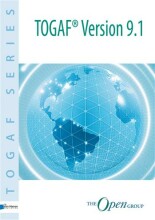Relance: the Enlarged Europe
13 important questions on Relance: the Enlarged Europe
The Hague Summit of 1969. The 1970's and the paralysis of European integration.
Pompidou proposes a summit of Heads of State and Government to "relaunch" the Community (1969). Three basic topics to be dealth with:
- Financing of the CAP agreement on the Community budget.
- Enlargement of the Communities.
- Deepening of Communities. > Two reports are commissioned: the Werner Report (EMU) and the Davignon Report (political cooperation).
What were the difficulties during the '80s concerning European integration?
- Tense background on International Relations (Second Cold war).
- The economic difficulties of the 70s drag during the first half of the 80s, exacerbating national interests.
The 80s and European integration.
- Tense backgroundon IR (Secondcoldwar).
- The economic difficulties of the 70s drag on during the first half of the 80s, exacerbating national interests.
Appearance of new political leaders who will have special relevance in the process of European construction. :
UK, France and GFR. Which political leaders?
- UK – Margaret Thatcher (79-90) “Wehavenotsuccessfullyrolled back thefrontiers of thestate in Britain, only to seethem re-imposed at a Europeanlevelwith a Europeansuper-stateexercising a new dominancefromBrussels”.
- France – François Mitterrand (81-95).
- GFR – Helmut Kohl (82-98).
There was a good Europeanist understanding between Mitterrand-Kohl (Franco-German axis), to which Felipe González (82-96) will be added.
- Higher grades + faster learning
- Never study anything twice
- 100% sure, 100% understanding
Thatcher and the budget crisis. Describe the UK budget crisis:
- Until 1980 the UK benefited from a transitional period;
- From 1980 onwards, application of the "normal" budget system (negative balance for the UK). Problems: British agriculture and the economic crisis in the UK;
- Thatcher's speech at the Dublin European Council (Nov.79): “We are notaskingtheCommunityoranyoneelseformoney. We are simplyasking to haveourownmoney back”.
Thatcher's speech at the Dublin European Council (Nov.79): “We are notaskingtheCommunityoranyoneelseformoney. We are simplyasking to haveourownmoney back”.
What was the Community position against the general budget changes, while Thatcher threatens to stop paying its share to the EU budget?
- Fontainebleau European Council (25-26/06/1984): the Ten decide to establish a financial compensation mechanism for the UK (the "British rebate").
- Impact of British demands: Mitterrand formulates the possibility of establishing a Europe of "variable geometries" or "different speeds“.
- The revitalisation of the Franco-German axis and impetus for progress in European integration.
Enlargement to Ten (1981) and Twelve (1986). Which countries joined in those years?
- Greece.
- Portugal.
- Spain.
Application to join the Communities.
Enlargement to Ten (1981) and Twelve (1986).
9 react favourably to enlargement (although they point to some adverse economic consequences).
- Greek adhesion: it causes some problems within the EPC (divergent postures).
Accession of Spain and Portugal: Spanish negotiations begin on 05/02/79 and Portuguese negotiations begin on 17/10/78. The Spanish accession will be the most complicated (long negotiations: agriculture, unemployment, fishing).
- Accession Treaties of both countries signed on 12/06/85 in Madrid and Lisbon.
Which supporting country was key for the Spanish accession?
What marked the enlargement of the community from Ten and Twelve in 1986?
Spinelli Project on EU Treaty 1984.
- In July 1981 the EP set up an institutional committee chaired by Altiero Spinelli (federalist) and charged him with preparing a draft EU Treaty that would bring together the 3 EU treaties and intergovernmental activities (and would be called the Constitution). The EP approved the final draft on 14/02/84 (237 in favour - 31 against - 43 abst.).
Describe the preamble of this project:
Describe the Spinelli Project on the EU Treaty, 1984, in short:
- Expansion of the field of competence Union and formalization ECP.
- Extension of decision-making by majority vote in the Council and strengthening of the Commission's implementing powers.
- More democracy by extending the powers of the EP.
- At the institutional level, the European Council as the presidency of the Union and the Commission as the government of the Union.
Single European Act, 1987.
Context second half 80s: Euroephoria as a consequence of the entrance of the Iberian countries, impulse Delors and exit the international economic crisis.
The Milan European Council convenes an IGC which:
- Prepares for the completion of the Single Market in 1992.
- Improves the institutional system.
- Makes Progresses towards the Common Foreign and Security Policy.
Describe the preamble of the Single European Act, 1987:
Describe the institutional reform of the Single European Act in 1987:
- Institutionalreform:
- Institutionalises the European Council (extra-Community institution).
- Extension of the weightedmajority EU Council votes.
- Reinforcement of EP powers (binding consultation, accession and association agreements; introduction of a cooperation procedure with the Council).
- Reinforcement of executive power European Commission.
The question on the page originate from the summary of the following study material:
- A unique study and practice tool
- Never study anything twice again
- Get the grades you hope for
- 100% sure, 100% understanding
































